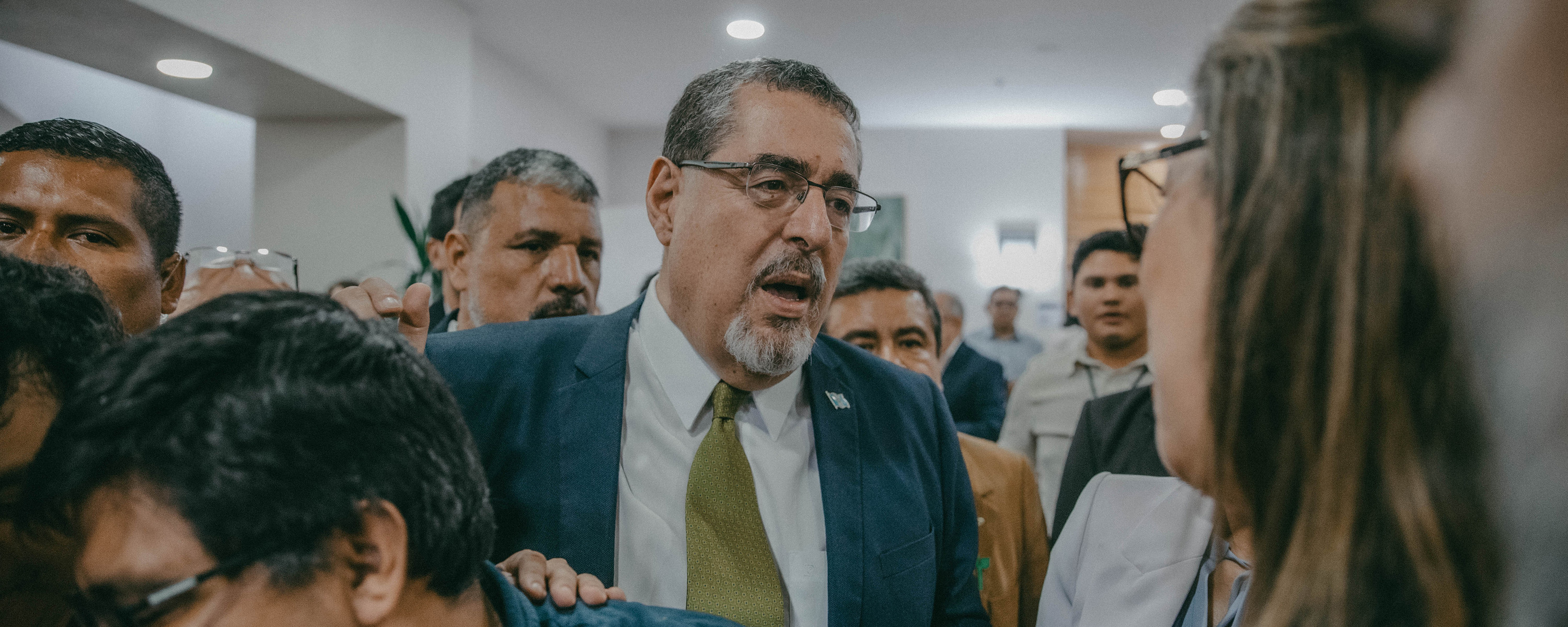Half a year has passed since Bernardo Arévalo was sworn-in as president of Guatemala after a very peculiar electoral process. While it is true that the legislative and judicial branches quickly mounted a blockade against the president’s agenda, his greatest challenge will be to renew his own campaign commitment to negotiation and dialogue. Only Arévalo can save his government.
Most of the Guatemalan population, as expressed at the ballot box and in the streets, joyously welcomed the start of his term, and at some point it appeared that everyone was eager to show off their closeness to public servants who took office in January.
Just over 180 days later, with a more complete picture of the mark that his administration will leave on national history, we see how the other two branches of the state are currently bent on making the administration fail.
In Congress, the fleeting and feeble initial alliance between the ruling party Semilla and other blocs has crumbled, leaving the legislature incapable of setting a legislative agenda vital to the administration’s operation. This has fed a public image of weakness and thwarted the advance of key initiatives such as a Law of Competition, a budgetary increase, reforms to the Law of the Public Prosecutor’s Office, two attempts to decree a state of calamity during environmental emergencies, and a long list of etceteras.
The actor who has most undermined the administration is the “celestial” Constitutional Court, which continues to legitimize illegal judicial actions against the government including the ongoing suspension of Semilla, leading to their legislators’ exclusion from legislative leadership roles.
Semilla legislators’ inability to negotiate with other legislative blocs has received much criticism. But this task has for now been impossible, because political negotiations with traditional legislators have been subjected to bribery and shady business deals.
This is where ingenuity will be key to the success of political negotiations; they must strike a give-and-take without violating the law or principle.
Here I return to the issue of the Constitutional Court and its shady maneuvering, dressed up as judicial resolutions, as evidenced in the recent protection of the head of the Workers’ Bank (Bantrab), Jorge Mondal, from being removed by the president. Mondal has been accused of crimes in presenting his credentials to preside over Bantrab, but the injunction from the court prevents Arévalo from nominating a replacement.
Nor have the Public Prosecutor’s Office and courts of justice called a truce with the government. They have repeatedly attacked the democratic process in mounting a criminal case after the first round of voting against Semilla last July, and accusing Arévalo and Vice President Karin Herrera in November of “damaging national patrimony” by voicing support on social media for university protests. They have even threatened ministers and other authorities in order to boycott the administration’s actions.
Just this Thursday, former prosecutor Virginia Laparra, of the Special Prosecutor’s Office Against Impunity (FECI), announced her exile from Guatemala after her prison sentence was commuted and she was impeded from seeking public office for ten years. This is in clear retaliation for her work against corruption in the office that I directed until I, too, fled my country at the end of July 2021.
The exile of Laparra, like that of two-dozen colleagues from the justice system in the last three years, deals another frontal blow to Arévalo’s promise to curb political persecution and clean out corruption from the judiciary. The damage will be difficult to undo in the short term.
But how to explain this to the Guatemalan public if what people want is not understanding, but results?
This year’s rainy season has left devastating evidence of decadeslong state absence. The population will clearly complain to whomever is tasked with responding to them at this moment in time.
Citizens’ patience has limits; they will not take excuses for an answer.
The administration must sharpen every effort to overcome the slim margin for maneuvering that they have been dealt. The corrupt are chomping at the bit to celebrate their missteps.
I repeat: Bernardo Arévalo’s victory was the best thing to happen to Guatemala, but now the new president must show greater resolve, commitment, and decisiveness.
Juan Francisco Sandoval is the former head of the Guatemalan Special Prosecutor’s Office Against Impunity.

